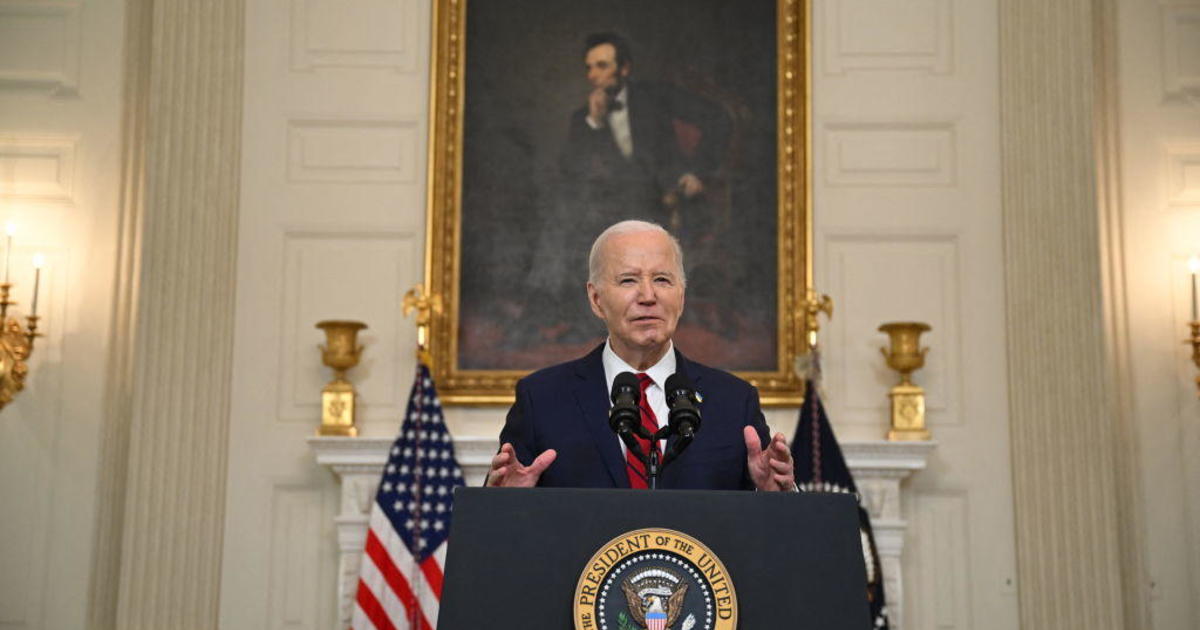Biden administration offering $13 billion to lower energy costs. Here's how to qualify.
The Biden administration on Wednesday said it is providing more than $13 billion to help Americans lower their energy costs this winter and improve the efficiency of their homes over the long term.
The announcement comes as winter energy costs are expected to soar this year, with the average household paying a 10-year high of about $1,200 to warm their home.
The aid is geared at helping low- and moderate-income families with lowering their energy costs this winter and beyond, the White House said in a statement. The push to help families lower their energy expenses also comes less than a week prior to the midterm elections, with many Americans expressing dour views on the economy due to the highest inflation in 40 years.
Dennis Stinson, vice president of sales for Fujitsu General America, which makes products including heat pumps, said spending more time at home during the pandemic has meant steeper energy bills for millions of Americans.
"We certainly are seeing increased costs — increasing fuel costs are the biggest driver, and a difference in usage," he told CBS MoneyWatch. "A couple years ago, we left the house and went to work — now it's our office and our education center, so our usage is changing."
The efforts to help lower energy costs will come through two main programs: the Low-Income Home Energy Assistance Program, or LIHEAP, and a new effort through the Inflation Reduction Act to subsidize energy-efficient home upgrades.
Here's how to qualify.
What to know about LIHEAP
The Biden administration said it is providing an additional $4.5 billion to help lower winter heating costs for low-income families through the Low-Income Home Energy Assistance Program, or LIHEAP.
While LIHEAP is a federal program, it is administered through each state. That means you'll have to apply through your state's individual LIHEAP office (Here's a list for each state's LIHEAP application site.)
In general, LIHEAP will help pay heating and cooling bills and pay for weatherization, which can help lower energy costs by improving the efficiency of your home.
The new funding will cover "home heating costs this winter and unpaid utility bills," as well as pay for home energy repairs to lower heating and cooling bills, the Biden administration said on Wednesday.
Each state's LIHEAP has its own rules and regulations, but generally the programs are aimed at helping lower-income households and have income limits as a result. In Pennsylvania, for instance, the income limit for a family of four for its LIHEAP is $41,625.
$9 billion in funding for heat pumps and other upgrades
The Biden administration also said it has allocated $9 billion in funding from the Inflation Reduction Act for heat pumps and other upgrades to make homes more efficient, with the funds going directly to states.
Texas and California are among the biggest beneficiaries, receiving $690 million and $582 million for their programs, respectively, the Department of Energy said on Wednesday. It expects the rebates and other funding to be available in 2023.
That is part of the Inflation Reduction Act's effort to provide up to $14,000 for each qualifying household to install heat pumps, electric appliances and other upgrades that can make homes more energy efficient.
While the rebate programs are currently being developed by each state, Stinson said that consumers can prepare by talking with contractors about their current heating and cooling systems, and determining whether it makes sense to upgrade. With the rebates, "you could almost end up with it free, to be honest," he said.



